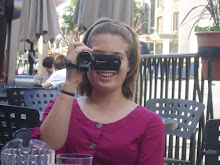Dear Miss Manners: I have been to occasions that do not have my favorite nonalcoholic drink ... DIET DECAF COLA!!!!!!
I suggest you tell the host to let everyone know with/in the invitations what nonalcoholic drinks will be available. The host should suggest if anyone has a particular type nonalcoholic beverage not offered to please feel free to bring their own!!!!!!!!!!!! After finding out the HARD WAY, I started taking my own nonalcoholic drinks years ago ......... !!!!!!!!!!!!!!!!!!!!!!!!
[take a moment for a snarfle....]
Gentle Reader: How did you get so hepped up without alcohol or caffeine?
Miss Manners is worried about you. Please take a deep breath and sit down while she explains the concept of hospitality.
There is a difference between a restaurant, which sells you food that you specifically order, and a private party, where the host offers you refreshments that he provides.
The restaurant knows exactly what you want because you do the ordering. Hosts, in contrast, are friends who wish to see you for the sake of your company. They should also want to please you by offering refreshment but must guess what would be pleasing to various guests.
Providing nonalcoholic drinks is thus standard. Providing each guest with the exact brand and mixture he or she prefers is difficult and burdensome, part of the finicky-guest syndrome that has discouraged reasonable people from entertaining.
Neither restaurants nor people’s homes should be treated like picnic grounds where you bring your own goodies. If you don’t like what is available at a restaurant, you need not do business there. If you are not willing, for the sake of politeness and sociability, to content yourself with water but must always have your favorite drink, you need not attend parties where it is not served.
Sometimes I roll my eyes just leeetle at Miss Manners because she's so very insistent on traditional modes of entertaining. In particular, she advocates 100%-potluck-free parties and dinners, where the host or hostess makes all the arrangements the way she wants and the guests simply come and enjoy. In this situation, the rule of social reciprocation is paramount: the host bears the entire burden and joy of the party this time, so it is up to her guests to take a turn next time.It's like taking turns picking up the check, instead of splitting the check. Taking turns is neater, and seems more gracious somehow--and ends the evening without all that frustrating math. But it only works if the parties involved are vigilant about reciprocation.
Miss Manners tends to frown upon the potluck, where everyone contributes equally to the spread, except in the case of church basement suppers. At the very least, she insists, the person who plans and arranges the location for the potluck cannot properly be called a "host."
The model of entertainment that I'm most familiar with is somewhere between these two, the "what can I bring?" model. I grew up in a world where you don't go to a party without an appetizer, salad, or dessert--but that the host plans and provides the main course, side dishes, drinks, decorations, etc. I don't think there's anything wrong with this--in fact, I think most of the people I know are comfortable and happy with this model--but I think it does change the clear rules of hosting, reciprocation, hospitality, and good-guest-ness.
For example, Miss Manners is terribly, horribly opposed to the idea of a cash bar at a wedding or similar grand occasion (or any occasion, for that matter). She abhors the idea of the host asking the guest to pay for his own drink.
Hosts should serve what they can afford to serve--be it a full bar, beer and wine, or a big old bowl of punch--and guests should drink it graciously.
However, I think this increasing sense of guest-ownership in the party that gives rise to things like the cash bar. In a world where the host is truly the one and only host, there'd be no question of who pays for the drinks. But we've entered a phase where guests are actually willing--even prefer--to pay if it means they have a stake and a say in what they get back. Hosts know they can't afford it, but they also suspect that guests would rather have the choice to buy it for themselves, than to go entirely without.
This diet-caffeine-free-cola fanatic is just an example of the kind of guest that, as Miss Manners suggests, discourages reasonable people from entertaining. If someone complained that their host provided, I don't know, Smirnoff instead of Grey Goose, it would seem obvious that they were snooty and ungracious. But even though the financial impact of requesting d-c-f cola is obviously not quite the same, the request says the same thing: "what you've chosen to provide is not good enough for ME."
I'm not a stickler for formal etiquette by any means, but it does serve up social interaction down as lovely, bite-sized, hors d'oeuvres, while "our" way seems more like sharing a giant order of supreme nachos with friends--it's tasty and awesome, but can get messy.



